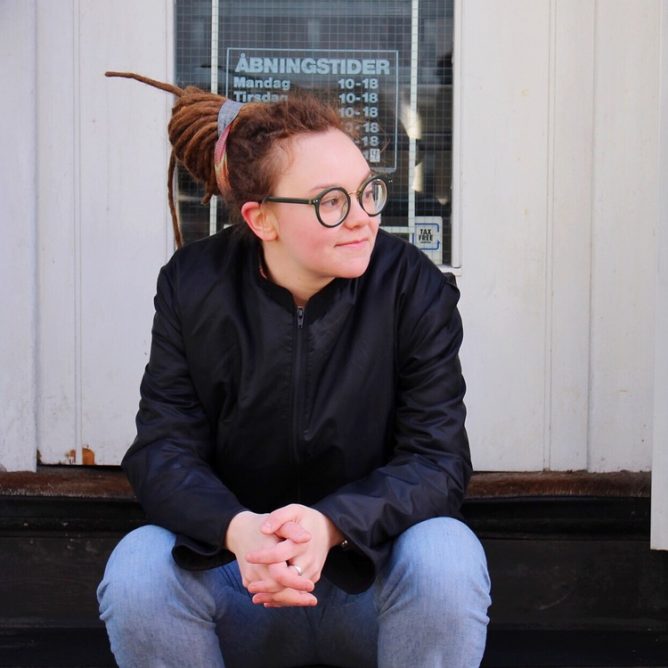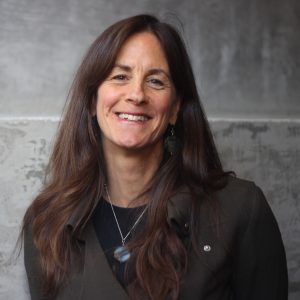Each month, the MA in Sustainable Design program invites a special guest for our Town Hall series where students, faculty, and alumni get to meet and chat with a leader in the field of sustainability or sustainable design.
This month’s guest was Jasmin Druffner, Durable Packaging Developer for Loop. Below are (paraphrased) excerpts from our conversation.
Tell us about your background and how you got to what you’re doing now.
I’ve always been connected to nature. I got my BFA in Industrial Design with a focus on Sustainability and Materials, and also have a background in biology. I really liked to make functional ceramics — that led me to industrial design. But then I became conflicted: I was making things that I knew would go to the landfill.
I did an internship at KEA where I learned about biomimicry (Aoife Fahey, MASD 2018 was her teacher). After that, I started creating products from waste (take a look at her website).
That eventually led me to Loop, where I was employee #8 – and just a year and a half later, we have almost 100 Loop employees worldwide. Now I work with brands as an advisor and consultant based on all the testing that we have done.
We’re all excited about Loop and have been reading about what you all are doing. What else can you share with us?
One key idea is that Loop is not fighting plastic, but fighting single use. Loop is the modern “Milkman” but at a much bigger scale. Instead of the consumer paying for a single-use container, the brand owns and is responsible for a durable and reusable container. There is a deposit associated with every container in Loop, normally ranging from $3 to $5, and consumer gets their money back on the container once it is returned to Loop.
The packaging that we develop collaboratively with our brand partners is designed to be highly functional and beautiful, and also durable enough for repeated transportation and washing. We focus on design ideations and research, and do lots of testing of potential durable containers via our own R&D and QA teams, and have created durable design guidelines that we’re always updating, while also pushing our brand and manufacturing partners for innovations in this field.
In addition to repeated re-use, our packages are also designed to be recyclable at the end of their useful design life. The LCAs work, even with deliveries, if the package is (re)used 3 to 5 times. We also set up local facilities, so we don’t ship across the country — and in doing so we also create local jobs.
What is the future of Loop?
We plan to do more business-to-consumer and business-to-business (e.g. toner cartridges and restaurant supplies, as well as partnering with retail). We’re exploring technologies such as putting sensors in containers that trigger re-orders. We’re also looking at increasing the variety of products and product categories in Loop, such as baby clothing, car care, reusable containers for fast food chains, and more innovations within packaging and durability.
Because of our successes, we know we’ll have competition. Loop is not the only solution. So many connections are needed. There is so much to do!
What advice do you have for MCAD’s MA in Sustainable Design network, and our readers?
What drives me is my passion. I’m super passionate about sustainability and the circular economy.
If you have an awesome idea — go for it! Try to make a community for yourself, find other people that are thinking likewise, even if it’s in a different country. Do what you’re really interested in, and hopefully it’s also good for the environment and for other people.
Thank you, Jasmin!
[image courtesy of https://www.jasmindruffner.com/ ]
If you want to develop and awesome idea that is good for the environment and for other people — and find other people that are thinking likewise — please explore MCAD’s fully online MA in Sustainable Design program!
NOVEMBER 1 IS THE APPLICATION DEADLINE FOR PRIORITY DECISION FOR SPRING 2020!

